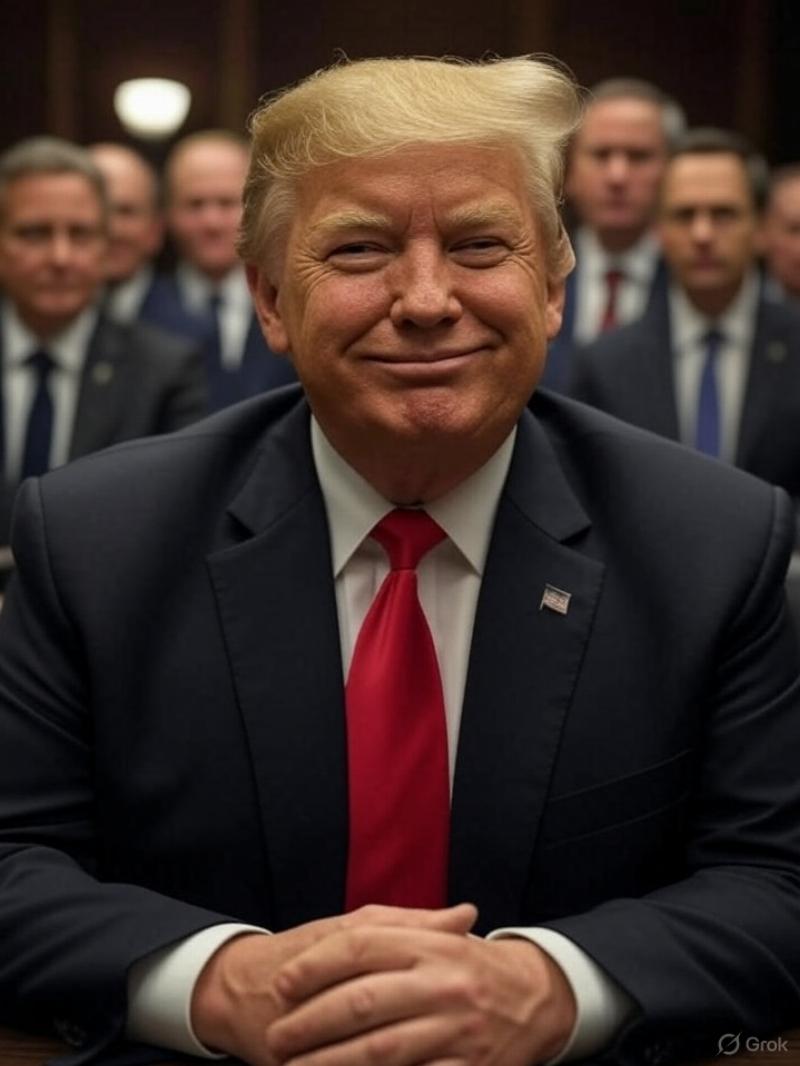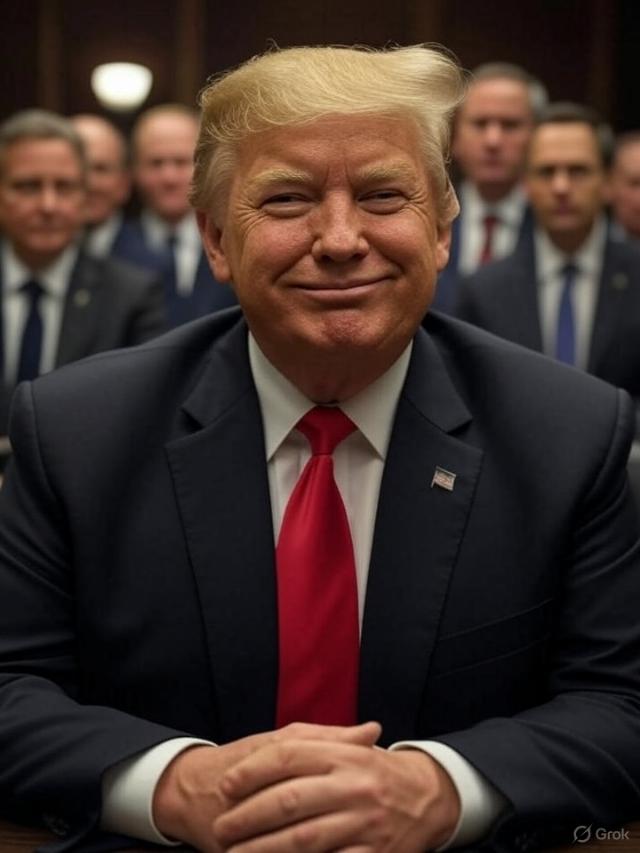


The real story isn’t that Europe blinked in the so-called trade war—that was always inevitable.
The real story is how many are now admitting aloud what Trump supporters have known for years.
A few, like Bill Maher, are at least willing to give credit where it’s due. But most still tie themselves in rhetorical knots—acknowledging the outcome while recasting the vanquished as victims in a story where Trump dared to succeed.
As I wrote in my April 9th American Thinker column, Too Little, Too Late:
Von der Leyen’s preemptive surrender was no gesture of goodwill. It’s a plea from a cornered technocrat who sees what’s coming: a second Trump term, a U.S. trade policy guided by strategic self-interest, and a world where the old racket of Euro-guilt-for-gain is finally over.
The European Union isn’t negotiating from strength. It’s bracing for another dose of reality—the same one Trump delivered in 2018 when he imposed tariffs on EU steel and aluminum, refused to be bullied in Davos, and told NATO members to pay their fair share or else.
The media chorus, echoed by what passes for Democrat leadership these days, warned that Trump’s tariffs would ignite trade wars and isolate America. But now Brussels is courting the supposed isolationist with an offer to zero out tariffs on industrial goods.
The legacy press and the political class—from Capitol Hill to Foggy Bottom—won’t say it out loud, but Trump’s tariffs are working—not by inflicting pain, but by exposing the lie that one-sided trade could last forever.
So what’s the point of calling your shot if you can’t take a little victory lap when the ball clears the fence?
Europe capitulated. And the Eurocentric chorus on both sides of the Atlantic is seething.
Legacy media outlets are wringing their hands. Certain think tanks are gnashing their teeth
Economists keep missing their projections. Jobs are rising. Inflation is down—well below Biden-era highs.
The stock market—an imperfect barometer, yes, but still—keeps setting records. Industries are reshoring. And Main Street is buzzing with optimism.
The one soft spot? Interest rates remain artificially high. But Powell’s era of monetary sclerosis is nearing its end.
After decades of lopsided trade, Europe finally admitted what it long denied: it needs access to the American market far more than America needs European validation.
Now, the EU must confront its own dense thicket of non-tariff barriers that for years boxed out U.S. exports. It must increase military spending—much of which will flow directly into the American defense industry.
And it must finally stop the self-defeating habit of buying Russian energy while counting on American power to contain Putin.
That era is ending—and not a moment too soon.
And on the matter of European security, let’s not forget: President Trump secured historic pledges from most NATO members to raise defense spending to 5% of GDP—an unimaginable leap just a few years ago.
Simply put, Trump has recalibrated the U.S.-European relationship with precision and with purpose. The goal? Put American interests first.
The White House isn’t just taking a victory lap—they’re breaking the tape with fists raised high. According to the official fact sheet, the deal:
This isn’t a minor policy tweak—it’s a sweeping structural overhaul of the U.S.-EU economic and geopolitical relationship.
It strikes at the core of the postwar contradiction that defined Europe’s posture: the illusion that a continent could simultaneously freeload off U.S. defense, bash American tech while demanding unfettered access to its innovations, block American goods, stiff-arm American energy, and bankroll Moscow.
That was never sustainable. Trump didn’t just expose it—he dismantled it.
And still, the complaints pour in. French officials called the deal “submission” and a “dark day.” German EU Parliament members labeled it “significantly imbalanced.” France’s European Affairs Minister even called for retaliatory measures against a deal the EU had just helped craft.
Retaliation for what, exactly? Buying American goods while protected by American troops?
Because here’s the truth: while the tariff terms may appear asymmetrical, the alliance itself has long been asymmetrical.
The United States has underwritten Europe’s defense for 80-plus years. It has shouldered the lion’s share of NATO’s costs while tolerating deeply protectionist EU trade policies—policies no genuine partner, let alone a dependent one, should ever impose on its chief benefactor.
Now, after President Trump secured real concessions—on tariffs, energy, defense, and investment—the usual suspects cry foul.
It is a dark day when an alliance of free peoples… resigns itself to submission.
—French Prime Minister François Bayrou, July 28, 2025
Submission to what, exactly?
To more balanced trade terms after decades of one-way access?
To defense spending targets NATO should have enforced years ago?
To buying energy from an ally instead of Putin?
This wasn’t strong-arming a fragile alliance. It’s long-overdue accountability. And the outrage? It’s a tantrum.
As ever, the sense of entitlement flows freely along the Seine.
The truth is, the outrage says more about the old order than the new deal. For decades, European elites gorged on American demand while walling off their markets with fortress regulations. The European Commission buried U.S. exports in red tape—especially in agriculture, digital services, and pharmaceuticals.
Now that game is up.
Trump did what previous presidents only talked about—if they acknowledged the problem at all.
For generations, American politicians genuflected at the altar of global consensus, chanting platitudes about world order and “free trade” while presiding over a rigged system that left Americans carrying the burden and coming up short on the deal.
Trump changed that. He cut through the Gordian knot binding together decades of economic and security dysfunction.
This agreement doesn’t just slash tariffs—it confronts the thicket of non-tariff barriers that have long distorted trade with Europe. Arbitrary certifications, regulatory favoritism, and anti-competitive red tape are finally on the table.
And while many of those barriers remain, their continued existence helps explain why the tariff structure appears asymmetrical: it’s a necessary counterweight to a European system—or rather, a confederation of over two dozen systems—designed to exclude American exports.
And let’s be clear: “America First” was never about isolationism. It wasn’t some pre-WWII fever dream. It was about restoring the logic of alliances—mutual respect, mutual contribution.
Trump made clear what no one else dared to say: the cycle of defense freeloading, energy duplicity, and one-sided access is over.
“America First” means American policy serves American interests. That shouldn’t be radical. That’s what diplomacy, trade, energy, and security partnerships are supposed to do—for any sovereign nation.
The fact that it disorients the Left—so thoroughly, so reliably, and so rabidly—says nothing about Trump or those who align with him.
It says all you need to know about an agenda that treats American interests as an afterthought.
Charlton Allen is an attorney and former chief executive officer and chief judicial officer of the North Carolina Industrial Commission. He is founder of the Madison Center for Law & Liberty, Inc., editor of The American Salient, and host of the Modern Federalist podcast. His commentary has been featured in American Thinker and linked across multiple RealClear platforms, including RealClearPolitics, RealClearWorld, RealClearDefense, RealClearHistory, and RealClearPolicy. X: @CharltonAllenNC

Image from Grok.
